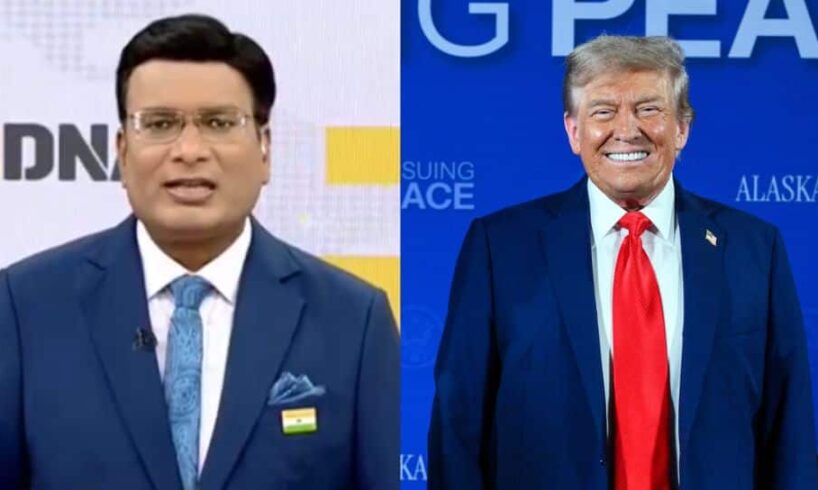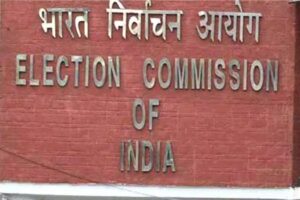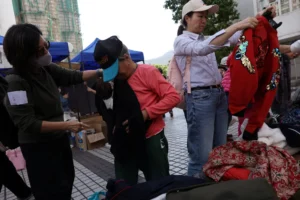
India is now facing the impact of a 50 percent tariff imposed by US President Donald Trump, which came into effect on August 27, sharply escalating trade tensions between the two countries.
A key video from Trump’s cabinet has drawn attention for showing special envoy Steve Whitkoff praising Trump and suggesting he is deserving of a Nobel Prize, highlighting the extraordinary flattery directed toward the US President. Whitkoff, appointed as Trump’s special envoy in November 2024, was tasked with mediating between Israel and Hamas, facilitating a ceasefire between Russia and Ukraine, and negotiating uranium enrichment talks between the US and Iran. However, his diplomatic efforts have met with limited success.
Whitkoff’s professional background is in real estate development, and he has partnered with Trump on several projects. Critics point out that he has little experience in diplomacy, which may explain why he focused on Trump’s Nobel Prize during the cabinet meeting.
Add Zee News as a Preferred Source
Watch DNA Episode Here: #DNAWithRahulSinha | #DNA #DonaldTrump #UnitedStates #USTariff @RahulSinhaTV pic.twitter.com/OwXwGXeof2 — Zee News (@ZeeNews) August 27, 2025
Tariff Decisions Linked to Countries’ Support for Trump
Analysts have noted a clear link between Trump’s tariff decisions and countries’ support for his alleged mediation efforts. Pakistan, which supported Trump’s Nobel claim, faced only a 19 percent tariff, while India, which questioned his role in Operation Sindoor, was hit with the maximum 50 percent duty. Azerbaijan and Armenia, which agreed to a ceasefire under Trump’s mediation, were given a 10 percent tariff, whereas Turkey, which obstructed the process, faced a 25 percent tariff.
Impact on Indian Exports: Textiles, Jewelry, and Machinery
The new tariff is expected to heavily affect Indian exports, including jewelry, machinery, and textiles. For instance, a shirt exported from India to the US, previously priced at $10, will now cost $15, whereas a similar shirt from Bangladesh, priced at $12 with a 20 percent tariff, will rise to $14, giving Bangladeshi products a competitive edge over Indian exports.
India’s Strategy to Offset Tariff Losses
In response, India has devised a strategy to expand exports to 40 countries, including Germany, the UK, Italy, Russia, Japan, and South Korea. These nations import around $590 billion worth of clothing annually, and India currently holds only a 5 percent share. By leveraging free trade agreements and reducing export taxes, Indian industries aim to offset losses caused by the US tariffs.
Watch DNA Episode Here: #DNAWithRahulSinha | #DNA #DonaldTrump #UnitedStates #USTariff@RahulSinhaTV pic.twitter.com/YgVkMsXjbe — Zee News (@ZeeNews) August 27, 2025
Defense Cooperation Continues Despite Trade Tensions
Meanwhile, defense cooperation between India and the US continues to progress. India has agreed to purchase 113 engines for Tejas aircraft from US company General Electric at an estimated cost of ₹87 billion. These engines will be used in 97 Tejas Mark 1A jets, with deliveries scheduled through 2033-34. Hindustan Aeronautics Limited (HAL) is also negotiating a technology transfer agreement to manufacture engines domestically, which could reduce long-term production costs.
While the 50 percent tariff poses significant challenges to Indian industries, defense deals continue without additional restrictions, allowing both countries to derive strategic benefits.
Mohan Bhagwat Calls for Stronger Domestic Manufacturing
RSS chief Mohan Bhagwat has commented on the tariff, stating that international trade pressures should not dictate domestic policy. He emphasized the need to promote domestic manufacturing to reduce import dependence and suggested that only essential products should be included in import policies. His remarks indicate that Indian public opinion is increasingly responding to the tariff measures, though Trump is unlikely to alter his stance unless compelled by circumstances.





